How to use the 'Clipboard history' feature on Windows 10
Windows 10 includes an advanced clipboard experience, and in this guide, I will show you how to use it.
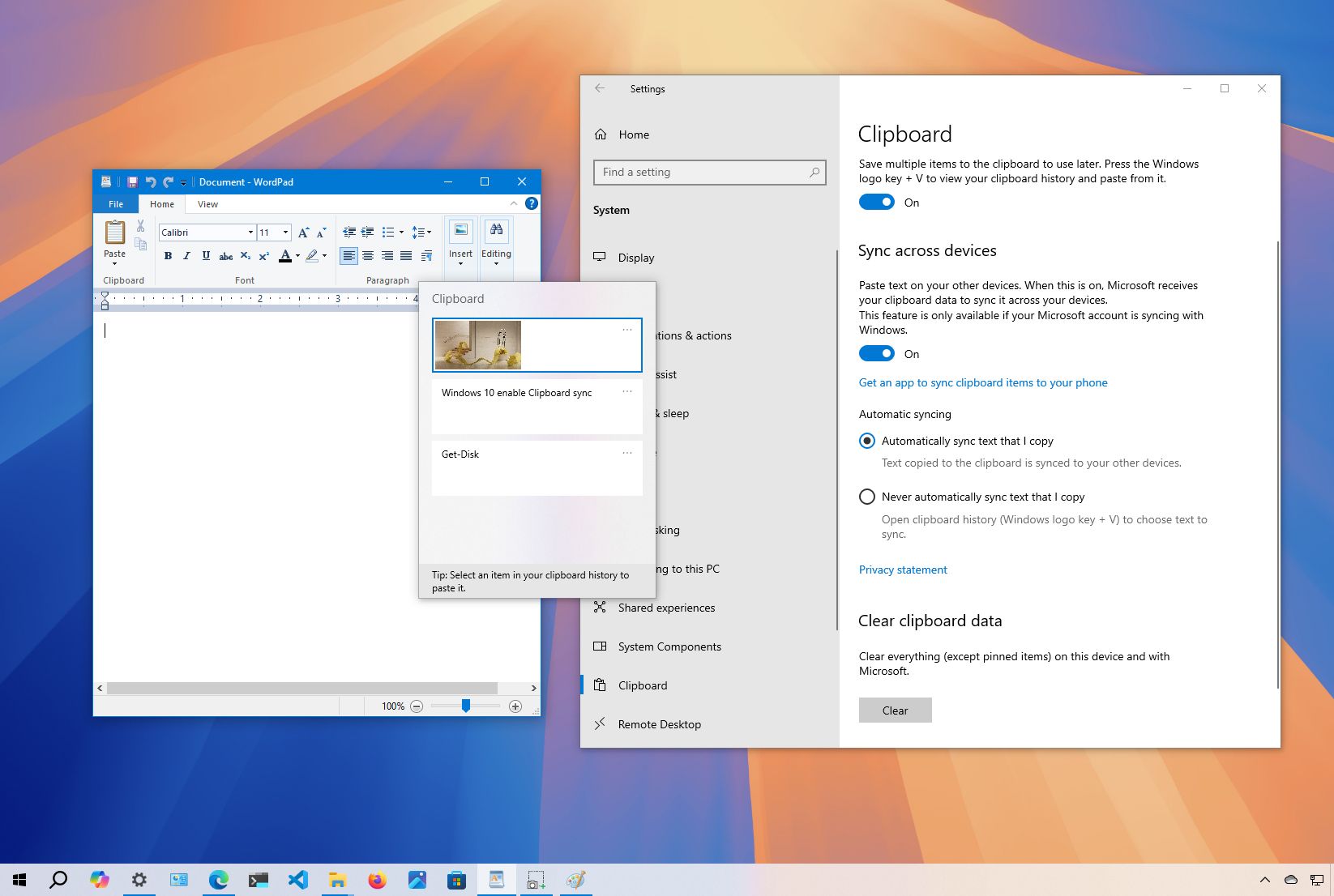
On Windows 10, you and I've been able to copy and paste text and images for a long time, but it's been a limited experience that only supported copying one piece of content at a time and no interface to view the item temporarily stored in the cliboard.
To overcome these limitations and to make the experience more useful, back with the release of the October 2018 Update, Windows 10 introduced a secondary feature for known as "Clipboard history" that tracks the text and images (up to 4MB) that you copy and adds an interface to view the history of copied items. The feature even includes an option to pin items you copy more frequently to paste them more quickly.
In addition, you can also turn on a feature to sync your clipboard history and them accessible across all devices when you're signed in with a Microsoft account.
In this how-to guide, I will walk you through the steps to set up and use the cloud-powered clipboard experience on Windows 10. (You can use these instructions to use the same feature on Windows 11.)
How to enable clipboard on Windows 10
On Windows 10, you can enable the new clipboard experience through the Settings app and dedicated interface.
Enable clipboard from Settings
To enable clipboard in the Settings app, use these steps:
- Open Settings.
- Click on System.
- Click on Clipboard.
- Turn on the Clipboard history toggle switch.
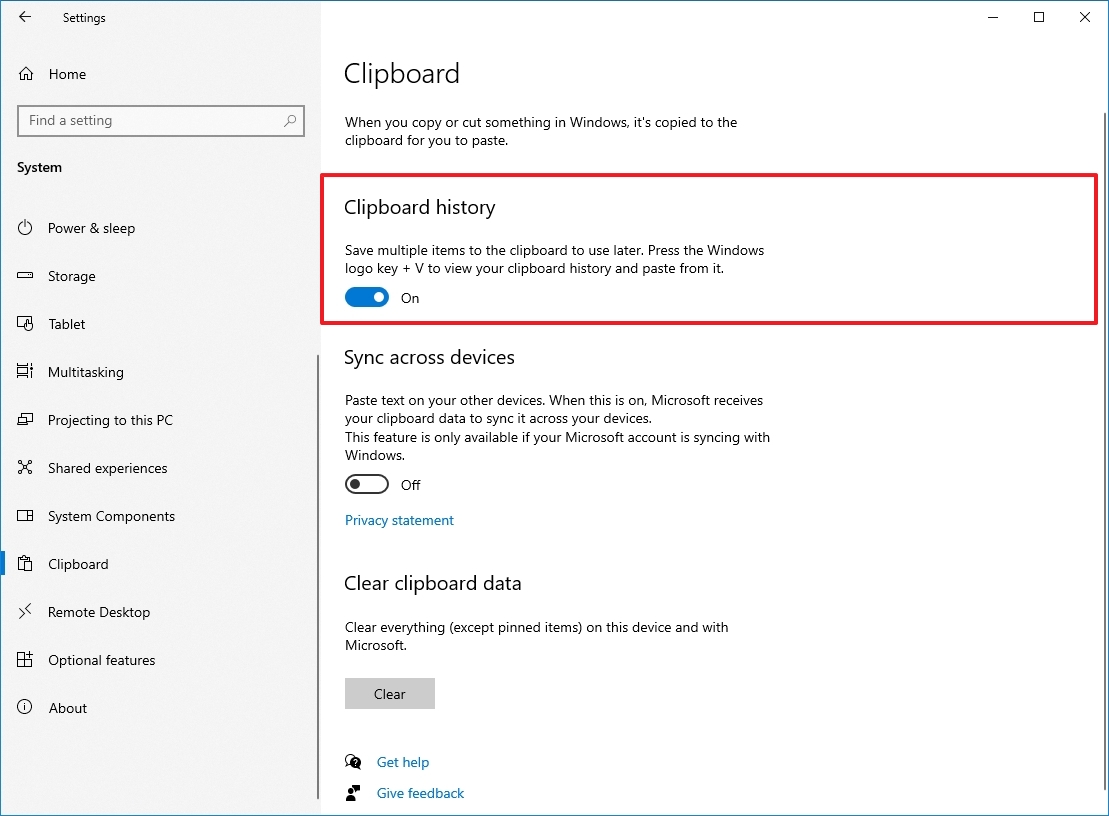
Enable clipboard from shortcut
Alternatively, to enable clipboard using a keyboard shortcut, use these steps:
Get the Windows Central Newsletter
All the latest news, reviews, and guides for Windows and Xbox diehards.
- Use the "Windows key + V" keyboard shortcut.
- Click the Turn on button.
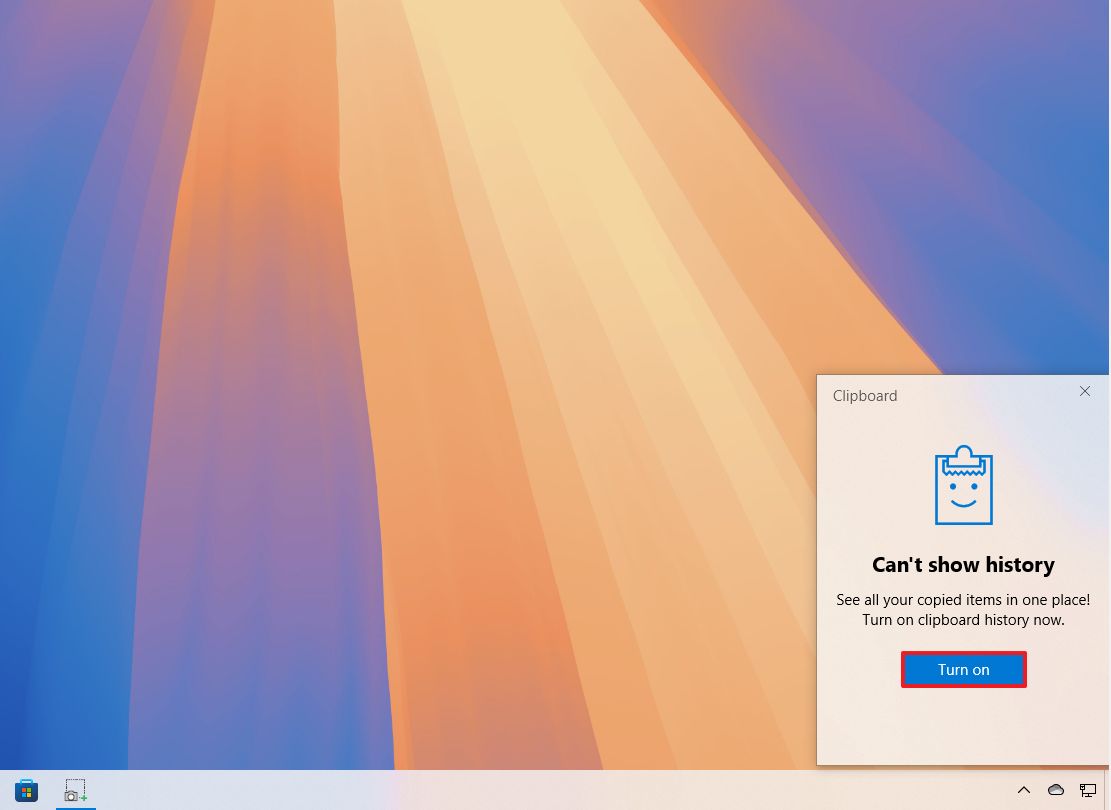
After completing the steps, you can start using the Clipboard history and manage many other settings.
Disable clipboard on Windows 10
The Clipboard history comes disabled by default, but you can check or disable it if the feature is turned on using these steps:
- Open Settings.
- Click on System.
- Click on Clipboard.
- Turn off the Clipboard history toggle switch.
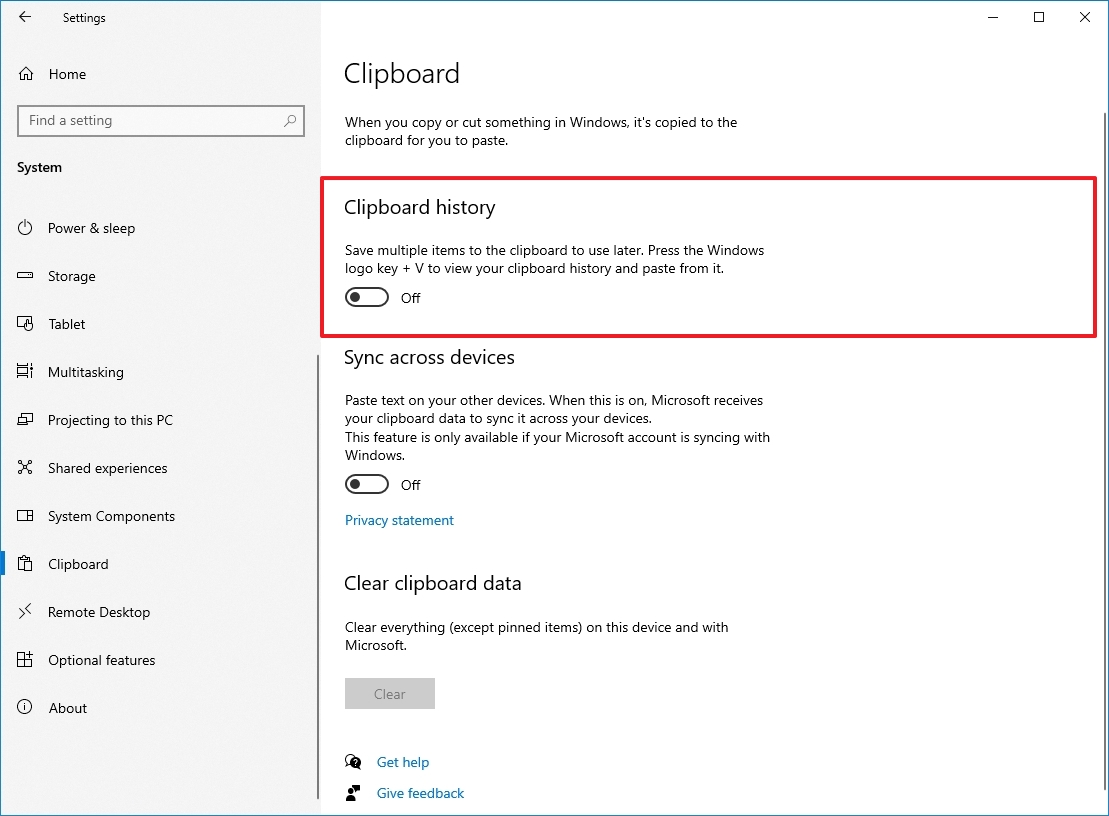
Once you complete the steps, the new clipboard experience will no longer be available without affecting the legacy clipboard functionality.
How to sync clipboard history on Windows 10
Perhaps one of the most interesting features about the Clipboard history is the ability to paste text and images on your other devices. However, to minimize privacy concerns, it's a feature that you must enable and configure manually using these steps:
- Open Settings.
- Click on System.
- Click on Clipboard.
- Turn on the "Sync across devices" toggle switch.
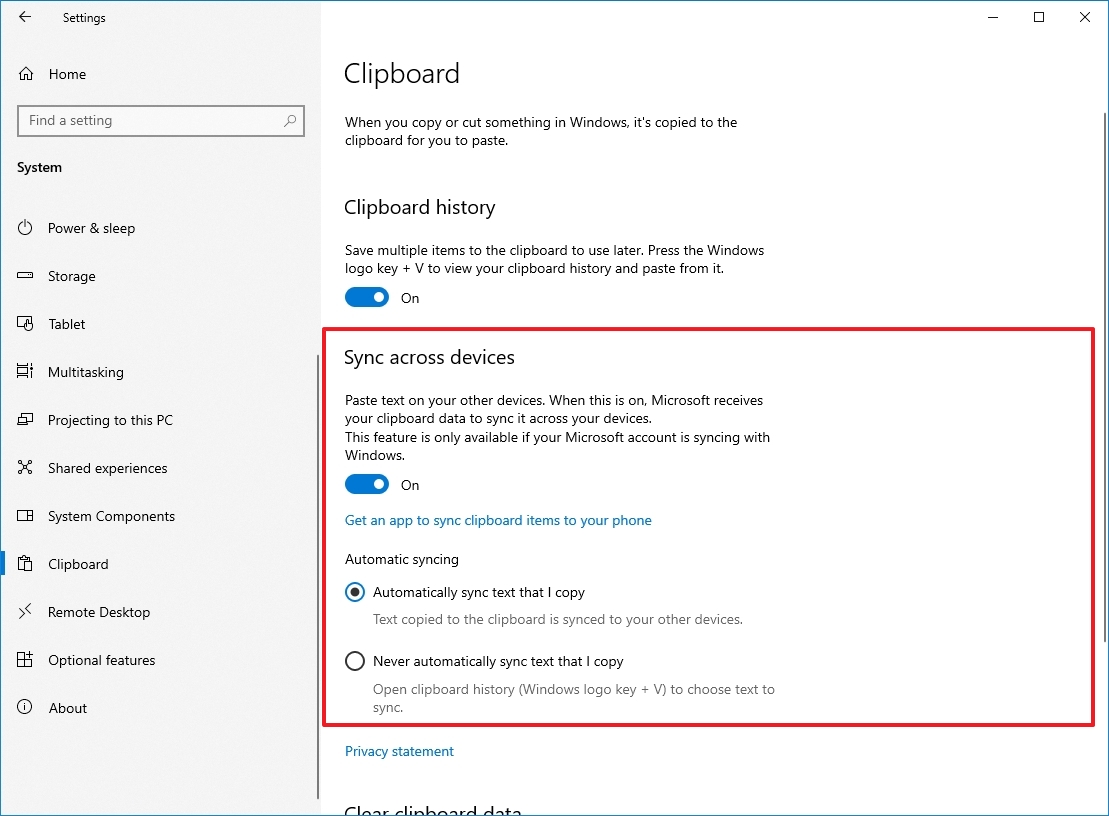
- Select the automatic syncing option you want to use:
- Automatically sync text that I copy: Your clipboard history will sync to the cloud and across your devices.
- Never automatically sync text that I copy: You must manually open the clipboard history and select the content you want to make available across devices.
After completing the steps, your content history will sync to the cloud and across devices using the settings you specified.
How to clear clipboard history on Windows 10
If you want to delete your clipboard history because you no longer want to use the experience or something isn't working correctly, and you want to reset the history to see if that fixes the problem, use these steps:
- Open Settings.
- Click on System.
- Click on Clipboard.
- Click the Clear button under the "Clear clipboard data" section.
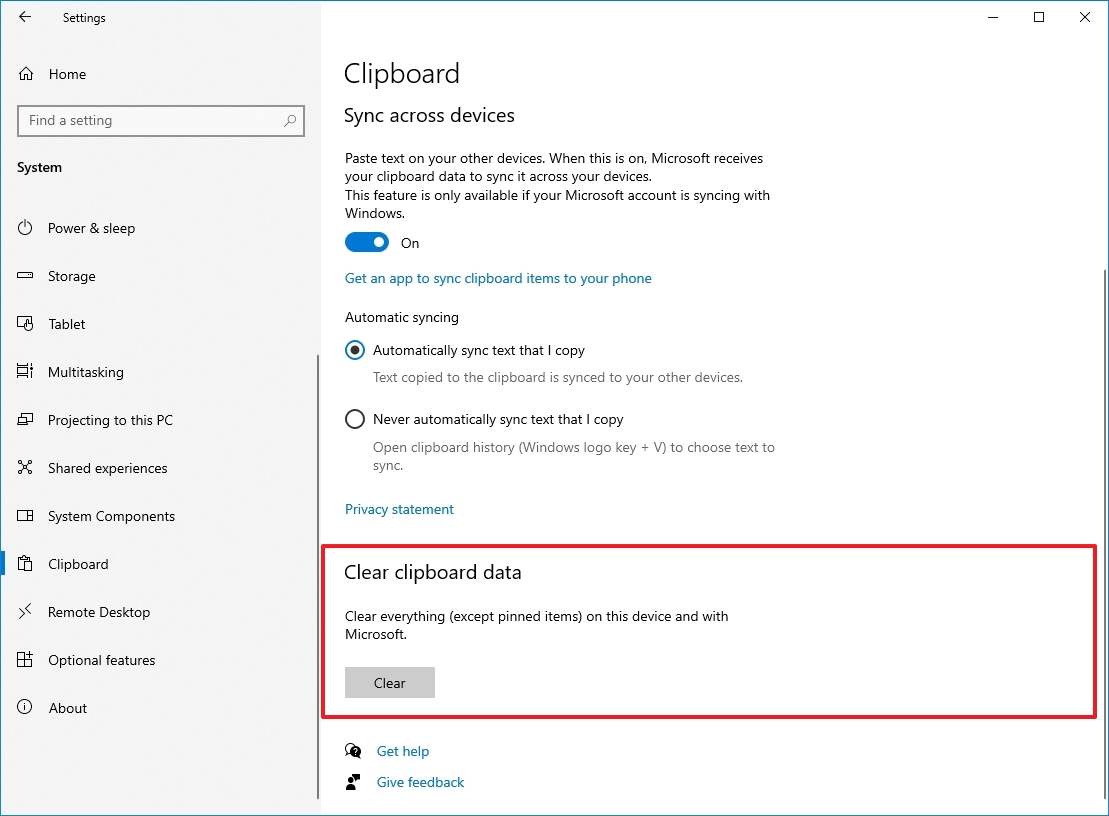
Once you complete the steps, your clipboard content will be deleted from your device and Microsoft account, but pinned items will remain in the history until you remove them manually.
If you're looking to delete one or two clips, instead of clearing the entire history, you can open the history interface with the "Windows key + V" keyboard shortcut, and open the item's context menu (three-dots), click the "X" button for each content you want to delete. Alternatively, you can also click the "Clear all" button in the history interface to erase the list (except the pinned items).
How to use clipboard on Windows 10
Although the more capable clipboard introduces an interface and several additional features, it's not an experience complicated to use.
The new clipboard complements the old experience you already know. You can still use the "Ctrl + C" keyboard shortcut to copy and the "Ctrl + V" keyboard shortcut to paste. The same is true using the right-click context menu.
However, you can now use the "Windows key + V" keyboard shortcut to bring up the Clipboard history. In this interface, you'll find a list of items (such as text and images) that you have copied from different applications, such as Microsoft Word, Snip & Sketch, OneNote, etc.
If you want to copy and paste content from your history, use these steps:
- Select the text or image from an app.
- Right-click the selection, and click the Copy or Cut option.
- Open the document you want to paste the content.
- Use the "Windows key + V" keyboard shortcut to open the Clipboard history.
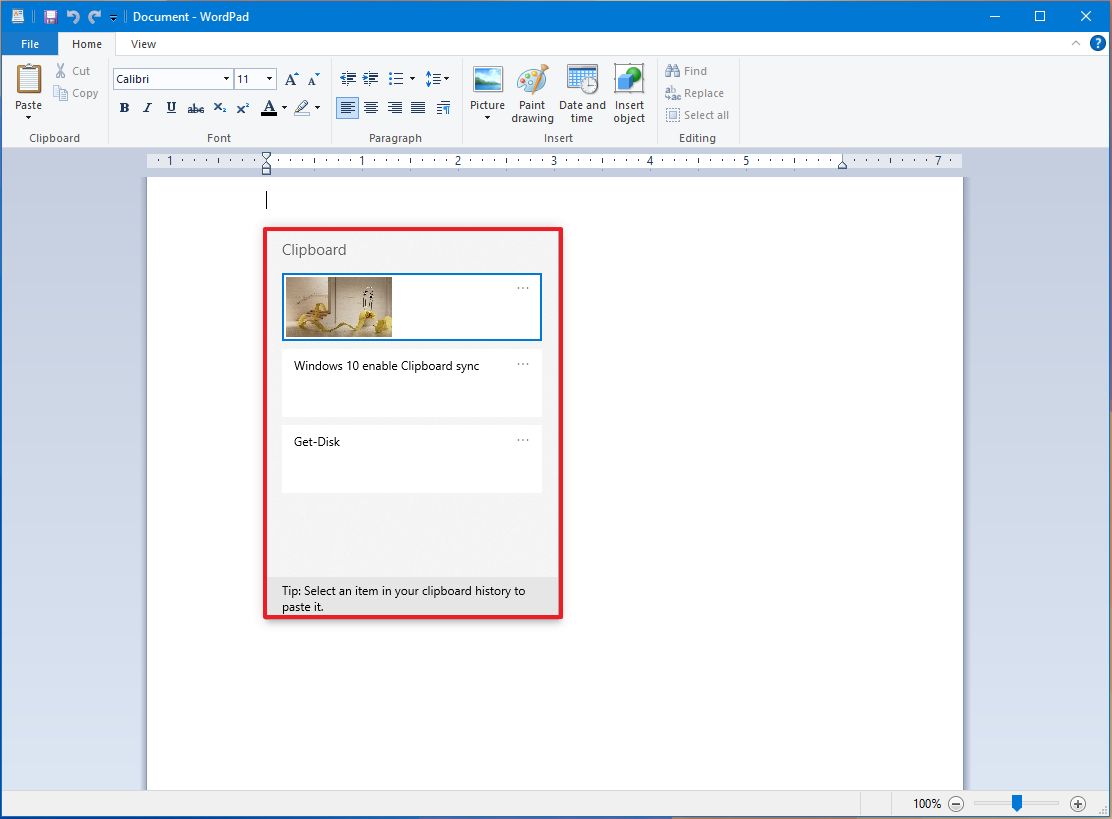
- Select the content you want to paste.
You can also pin the items you paste frequently for faster access using these steps:
- Use the "Windows key + V" keyboard shortcut to open the Clipboard history.
- Open the three-dots menu on the right and choose the Pin button for the content you paste frequently.
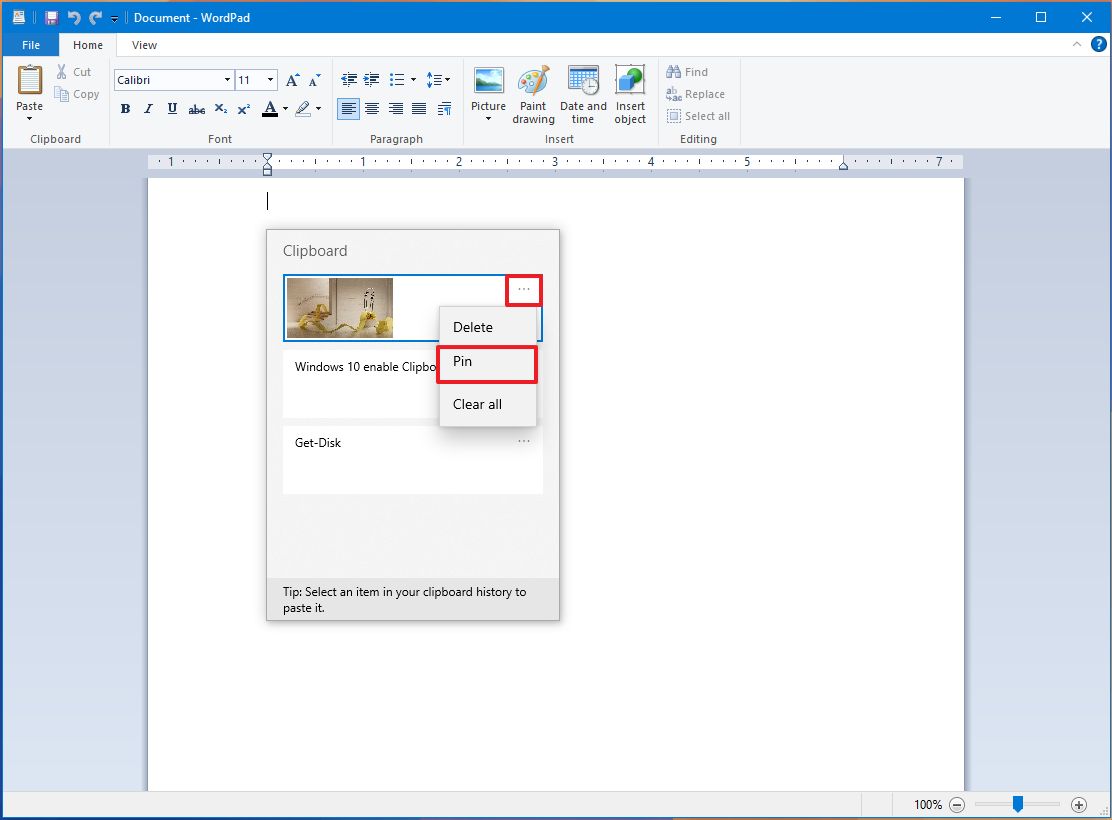
When you no longer need the content, open the item's context menu again to unpin or the "X" button to delete the item.
Using the Clipboard history, there are some obvious limitations as no everything you copy will appear in the history or sync across devices. For example, you can copy the name of a file, but copying a file to move it to another location will not appear in the history interface.
Also, the cloud clipboard supports images, but only if you copy the image within a document. You cannot copy an image file and expect it to appear in the history or sync across devices.
If you choose to enable this feature, make sure that you also understand the potential security risks. For example, if you're one of those that usually copy sensitive information (such as passwords, addresses, names, etc.), anything you copy to the clipboard will store in plain text, and anyone with access to your computer will now be able to see this information by just using the "Windows key + V" kebyboard shortcut. In addition, if you enable the sync option, you'll also be uploading your history to the Microsoft servers.
More resources
For more helpful articles, coverage, and answers to common questions about Windows 10 and Windows 11, visit the following resources:
Mauro Huculak has been a Windows How-To Expert contributor for WindowsCentral.com for nearly a decade and has over 15 years of experience writing comprehensive guides. He also has an IT background and has achieved different professional certifications from Microsoft, Cisco, VMware, and CompTIA. He has been recognized as a Microsoft MVP for many years.

